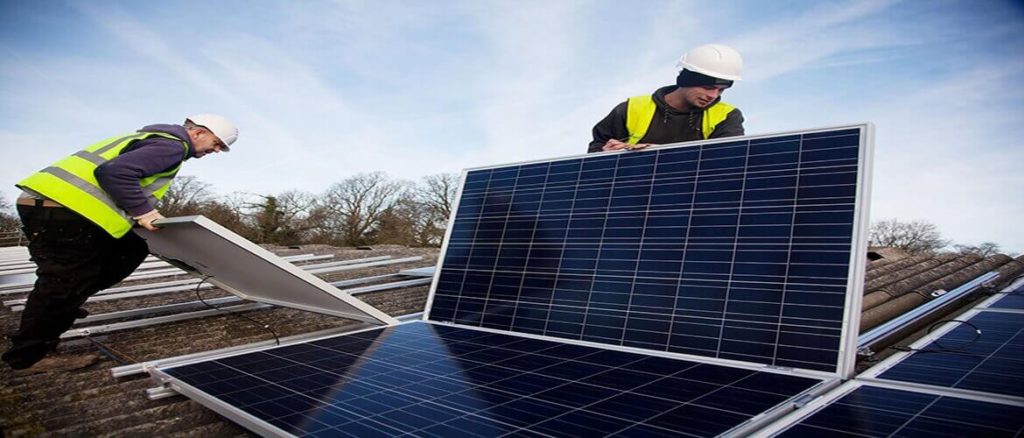MEDIA RELEASE
Conservation Council of New Brunswick releases policy options to spur climate change conversation
READ: A Climate Action Plan For New Brunswick
July 13, 2016
Fredericton, N.B. – A new report from the Conservation Council of New Brunswick, released today, offers provincial politicians, environmental policy makers, and citizens a bold vision for New Brunswick. The three-part plan covers electricity, provincial investments, and government policies required to reduce greenhouse gas emissions while keeping bills low and creating jobs for New Brunswickers.
New Brunswick’s greenhouse gas emissions mostly come from using fossil fuel energy: coal, oil and natural gas to make electricity to heat and cool our homes, and power our appliances and industry, as well as gasoline and diesel to run our vehicles and trucks to move people and goods.
The Conservation Council’s Climate Action Plan for New Brunswick proposes to reduce these emissions through investments to retrofit our buildings, starting with social and low-income housing; expanding efforts to install renewable energy like solar and wind; and accelerating installation of the Energy Internet (Smart Grid telecommunications) to manage a more distributed electricity load. These investments would help NB Power phase coal out of electricity production over the next 15 years. The Conservation Council’s plan also proposes creating incentives to help New Brunswickers buy electric and energy efficient vehicles and trucks as Ontario and Quebec have done, and modernizing industry and manufacturing to cut waste and pollution.
Blue-Green Canada, an alliance of labour and environmental groups calculates that for every $1 million invested in the fossil fuel sector two jobs are created, while 15 jobs are created for the same amount in the clean energy sector. Using those figures, New Brunswick could create up to 7,500 jobs a year by investing its climate action dollars in clean energy and energy efficiency retrofits which, in turn, would keep energy bills low for New Brunswickers.
QUOTES:
“There is strong scientific consensus that the climate is becoming unbalanced mostly because of human activity (95% – 100% certainty).” – Dr. Louise Comeau, Director of Climate Change and Energy Policy.
“Post-tropical storm Arthur opened New Brunswickers’ eyes to the reality of climate change. We now know and accept that climate change is a reality. The Conservation Council wants to start a serious conversation about adapting to, and mitigating, the damage to our communities as a result of a rapidly changing climate.” – Dr. Louise Comeau, Director of Climate Change and Energy Policy.
“We need a comprehensive climate action plan that helps New Brunswick do its fair share so others will too. We need to work together because we can’t protect the people and communities we care about from extreme changes to the climate without partnering to drastically cut greenhouse gas pollution.” – Dr. Louise Comeau, Director of Climate Change and Energy Policy.
“New Brunswick needs to implement policies and programs that are fair and cut waste by making polluters use clean energy and practice more sustainable agriculture and forestry.” – Dr. Louise Comeau, Director of Climate Change and Energy Policy.
“If we act together, we can limit the risks to our health and communities from a more extreme climate.” – Dr. Louise Comeau, Director of Climate Change and Energy Policy.
Key Facts:
- New Brunswick is the second most electricity-dependent economy in Canada behind Québec. As a regional energy hub, New Brunswick is well positioned to become a clean energy leader by investing heavily in NB Power’s Smart Grid technology to give the electricity system the capacity it needs to significantly increase the supply of renewable energy, phase out coal-fired generating stations, and provide load balancing services to Nova Scotia, PEI, and New England.
- Global investments in clean energy are increasing, spurring increased employment in the sector while the costs of clean energy have decreased significantly. Canada hasn’t kept pace, investing only $4 billion CND in 2015 while global investments in clean energy reached $325 billion USD, according to Clean Energy Canada’s Tracking the Energy Revolution 2016
- In 2015, the Atlantic Premiers and New England Governors agreed to cut greenhouse gas emissions 35% to 45% below 1990 levels by 2030. New Brunswick’s contribution to meeting that goal is to eliminate 6.5 million tonnes from our carbon budget. Almost 40% of those reductions can be achieved by phasing out coal to generate electricity, as Ontario has already done and Alberta will do by 2030.
The Conservation Council of New Brunswick (conservationcouncil.ca) has been at the forefront of environmental protection in New Brunswick since 1969. We are a non-profit organization that creates awareness of environmental problems and advances practical solutions through research, education and interventions.
Recommended Links:
- The Conservation Council’s complete media package.
- Conservation Council Climate Action Plan
- PressRelease: ClimateActionPlan
- BackgrounderClimate Action Plan Quick Facts
- BackgrounderClimatePlanHighlightsInfoGraphic
- BackgrounderClimatePlanProcess
- BackgrounderFollowtheMoney
- BackgrounderQuestions and Answers
- OpinionPiece: ClimateActionPlan

